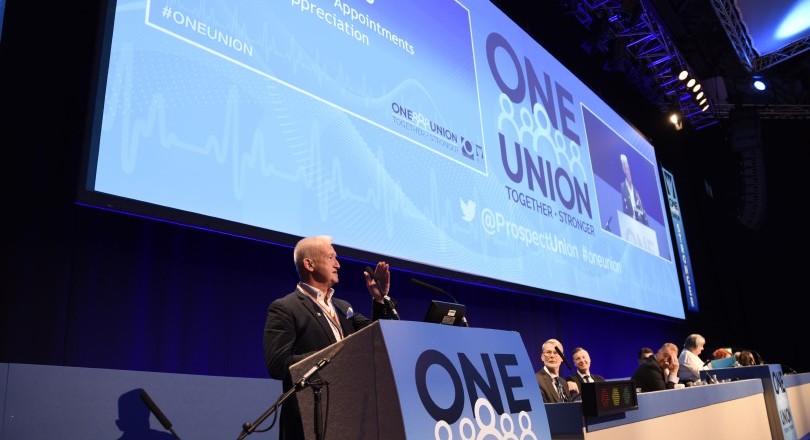Dai started his working career as a cartographer at the Ordnance Survey in 1974, but soon came to the attention of the leadership of the then-IPCS, a forerunner of our union today, in his capacity as a rep.
He had held a full-time elected role at the mapping agency for three years (at the time he was the youngest secretary in the history of the branch, which had more than 4,000 members) and had developed a reputation for the deals he negotiated for members.
While in that role, Dai negotiated significant local changes to a flexible working hours agreement, improving on those initially secured through national agreement by the union.
The union’s deputy general secretary at the time, Bill Brett (who went on to become general secretary, a Labour minister and peer), recognised Dai’s talent and asked him three times to apply for a staff role.
Dai says: “In the end, I did. At first, I found the union a bit stuffy and very hierarchical. I felt a little lost and wondered what the hell I’d done, as I had been very happy in my previous role.”
And so, in 1985, Dai left a job that he had enjoyed and began the illustrious career that has led him to the office of deputy general secretary at Prospect today.
Milestones
Key moments include the anti-privatisation campaigns at the Rosyth and Devonport dockyards; opening one of Prospect’s first offices outside London, in Liverpool in 1990; and guiding members through the aftermath of the Gardiner report, which linked the radiation exposure of fathers to an increased likelihood of their children developing leukaemia.
He negotiated significant pension protections for nuclear workers in the Energy Act 2004, which withstood a legal challenge and are still in place today.
In 2007, he convinced other – reluctant – civil service unions that a new pension scheme should be based on career average, which lay the groundwork for further negotiations five years later.
Two years later, Dai led negotiations with the government over changes to the Civil Service Compensation Scheme, picking it up again a year later with a new government after the deal was overturned in a legal challenge.
He says: “These were very complex and challenging negotiations, made more so as we had already been through the whole process with a previous minister. But the outcome we achieved was overwhelmingly supported in a ballot involving 36,000 members.”
In 2012, Dai played a leading role in the negotiations on public sector pensions reform in the civil service, building on the agreement reached in 2007.
“These were some of the most demanding negotiations conducted by Prospect. But after a comprehensive communication campaign explaining the deal, it was put to a ballot and members endorsed the recommendation to accept by more than two to one.”
Other career highlights include managing the campaign to retain Prospect’s political fund; negotiating the successful transfer of the British Association of Colliery Management into Prospect; and intervening in a long-standing pensions dispute in the states of Guernsey, which culminated in the biggest – perhaps only – trade union march yet held on Guernsey.
In 2016, Dai helped to achieve a breakthrough in a bitter dispute that had been running for four years over derecognition of trade unions by QinetiQ, resulting in the signing of a letter of co-operation allowing Prospect greater visibility and access to members.
And just last year, Dai took over pensions discussions taking place with the companies owned by the Nuclear Decommissioning Authority, gaining the confidence of the lay reps involved and arriving at a successful outcome covering 12,000 employees across several companies.
Although Dai often dealt with chief executives and government ministers, he has remained grounded: “I have been supported by a very long list of colleagues and lay reps without whom I could not have done or contributed to any of this. Making progress, or at least a very positive difference for members, has been a massive motivation for me.”
The future
Dai was also instrumental in the setting up of the Prospect’s Young Professionals Network, which is doing well. When asked what unions should be doing to attract younger members, he says: “We have to do more to evangelise the positive power that collectivism can be in the workplace. And strip things back to basics, being clear about what we do and telling it in a persuasive way.”
But for now, Dai is looking forward to retirement. He will continue his consultancy work as a member of the Radioactive Waste Management Advisory Council and intends to do voluntary work in his home town of Shoreham-by-Sea.
He says: “I may study psychology, take up sailing lessons or train to be a helicopter pilot. I have the rest of my life to do it!”
Prospect wishes you all the best, Dai, and thanks you for everything you’ve achieved on behalf of members.

